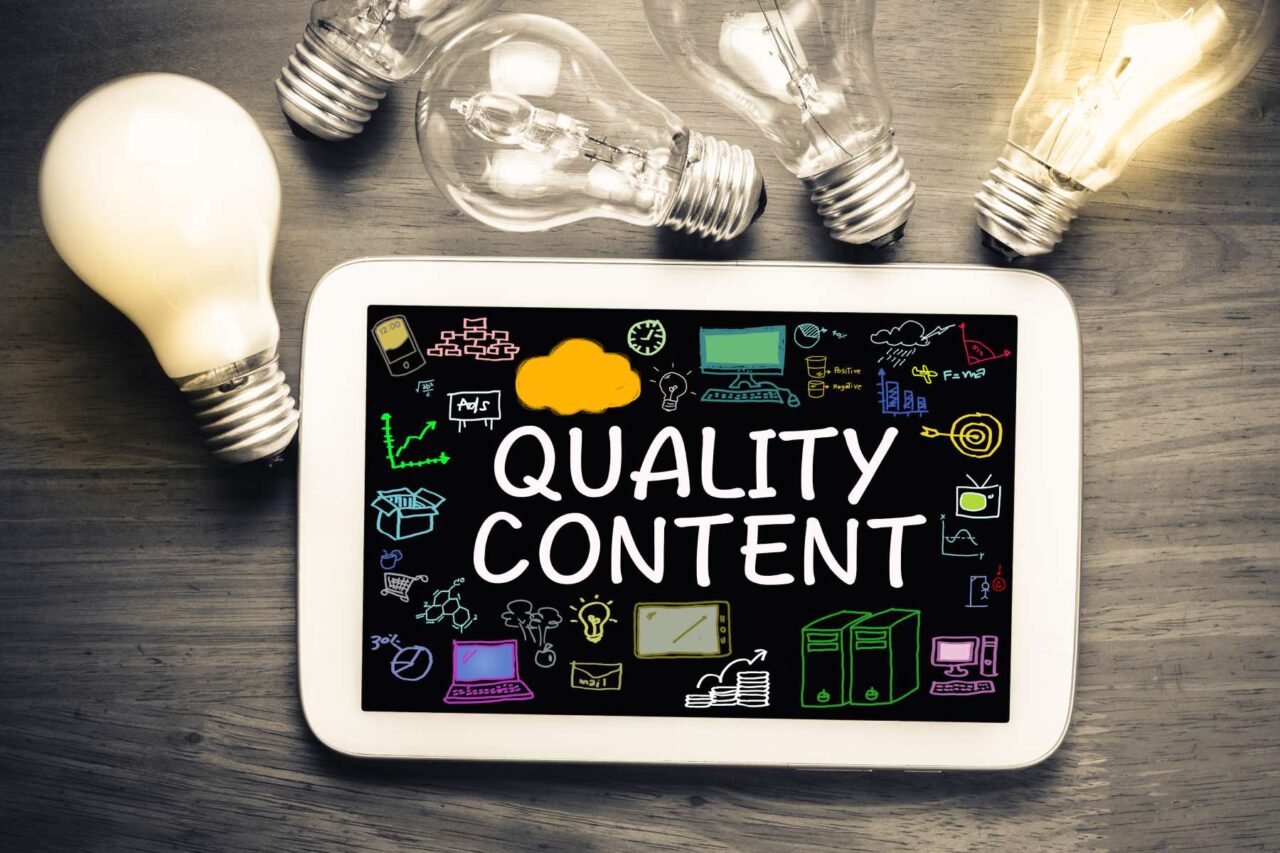Content is one of the most critical aspects of your website, both the front-facing content that first appears on a landing page to the backend content that helps you get rankings. Of course, a lot goes into creating good content, but why?
There are two basic types of website content: text and multimedia. This means that website content isn’t just written words, but the quality of links, images, reviews, videos, etc. Your content matters when clients see it and for the web crawlers via search engines like Google or Bing to rank your website well.
Anyone can create content, and many do. However, making good content takes skill, and the quality of content comes with a cost. Let’s explore that in more detail.
The Cost of Bad Content
Almost anyone can make a website, especially in the age of DIY and small business. This is perfectly valid and worth getting started since many web hosting services come with helpful ways to create your site. However, just because you’ve created a pretty-looking website does not mean that the content is good.
A website that’s nothing but a pretty layout and pleasing colors may be lacking in the substance needed to garner the attention you want from visitors and web crawlers used by search engines. Of course, you want your website in front of the eyes of your audience, but the quality of the content they see when they arrive there will dictate whether or not they convert.
There are plenty of reasons poorly made content on your website could cost you. Here are two primary problems:
1. High Bounce Rates or Fewer Visitors
Content is the first thing your leads see, and according to Google, 53% of shoppers say they research online before making a purchase. This can apply to almost any product or service, especially ones with customer reviews.
People will quickly leave your website and look at your competitors if your content is bad. Likewise, poorly made websites or content can also confuse web crawlers, plummeting your rankings on the search engine results page.
2. Fewer Shares
One significant aspect of marketing is word-of-mouth. In our digital world, this is frequently from people sharing things they find interesting or valuable. That being said, visitors won’t share your website with others when your content is lackluster or not worthwhile to the consumer.
Poor client reviews will also have the same effect, which is why positive, genuine reviews are so valuable as content on your website. Encouraging happy customers to leave reviews about your products or services will help you gather more of these reviews.
How to Curate Quality Content on Your Website
For your website to do well in both ranking and client viewing, you need to have an organized plan for what you’ll fill your website with. As mentioned before, the content consists of text and multimedia. What you spend (in time, effort, or money) on that content will be displayed to your potential customers, so fast and cheap is not recommended.
1. Text & Links in Website Pages
The text on your website consists of all the written content; that much is obvious. However, text content should follow basic guidelines for ease and readability. The text also should regularly contain well-thought-out, non-competitive links that can help your website gain authoritative traction.
When your website reads well and contains links to well-known sources, it establishes your company as trustworthy. Here are some basic pages most companies should have on their websites:
- Primary landing page
- Contact page
- Service or product pages (if needed)
- About us page (if applicable)
- Blogs or press releases
Landing pages should be able to get to the point of what you do or what you have to offer without walls of text. Content is critical, but in some cases, less is more. No one wants to read a massive wall of text when they land on a company’s main page.
Within your landing page, potential or returning customers should be able to find your hours of operation, easy links to your other pages, and a general rundown of what you offer. If you have favorable client reviews in places like Google or Yelp, displaying them on your landing page is also good.
2. Multimedia in Website Pages
Alongside the text, a company should contain other forms of content on its website pages: videos, images, animations, or sounds. The key to using multimedia content effectively is not to overshadow your text-based content. Too much visual stimulus could impede your website, make it look messy or distracting, and potentially make it difficult to navigate for those with disabilities.
In the case of multimedia content, what you choose to add will largely depend on the type of business you’re running. For example, window-shopping websites may have a lot of product images. Likewise, service websites may want to utilize stock images or video aids, giving an idea of the kind of company it is.
Whatever kind of multimedia you use to convey the message your company wants to get across, it’s essential to do it in moderation.
3. Optimization
Optimizing your content is one of the most easily overlooked aspects of website creation! What good are a beautiful video and excellently laid out text if the medium your potential audience uses to see it isn’t displaying it correctly?
Ensuring your site speed is up to snuff and displays correctly both on mobile devices and desktops or laptops is critical. No matter the screen, your website should be able to adapt and display your content correctly.
Inclusivity often comes with optimization, too. For example, creating web pages that can be used easily by those with dexterity issues or who may live with audio or visual disabilities is a must!
The Reward Following Hard Work
Your website’s content will make or break your ultimate company image at the end of the day. Having a website is necessary whether you’re a small business or working on expansion, and with that necessity comes the need for good content to fill up that website.
Rome wasn’t built in a day, and while your business may not be akin to a sprawling city, it won’t thrive or do more for you unless you put in the work. At the end of the day, that’s what it comes down to. With hard work comes the payoff: higher conversion rates, return on your investments, and a growing brand that fulfills your efforts.
Creating the perfect website content isn’t always that easy, so many opt to partner with a digital marketing agency with experience in the field. If you’re ready to elevate your website with professionally designed content, reach out to the pros here at Optimize4Success.


